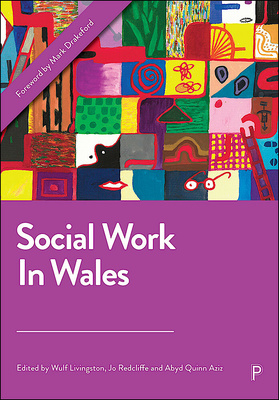Since 2016, social work in Wales has been operating under a very distinct legal framework to that in England. Understanding this separate ‘Welsh way’ has become a key component of social work education, and a requirement of students and practitioners alike.
Social work in Wales has come to be encapsulated in the arrival of the Social Services and Well-being (Wales) Act 2014, a piece of legislation that saw Welsh social work depart from the separation in English law of children and adult care practice. However, the Act, which came into force in 2016, only captured a longer trend that has its roots in Welsh devolution and the formation of a Welsh government.
Not only did the 2014 Act co-join children, family and adult social work under one framework, it incorporated into law a number of other well-established key Welsh social aspirations, most notably those of voice and control, prevention and early intervention, wellbeing and co-production. In 2015, the Welsh government followed this with the ambitious Well-being of Future Generations (Wales) Act 2015 with its emphasis on sustainable development and new ways of working.
In our new book, Social Work in Wales, this emerging distinct professional response to the changing policy landscape has been captured as the ‘Welsh way’. This article highlights three of the key messages we highlight in the book.
The first and dominant message is that the Welsh approach seeks to meet the aspiration for a rights-based approach that acknowledges and addresses social justice issues. Wales has had a longstanding radical political tradition with an emphasis on social issues and tackling economic disadvantages and inequalities. This encourages a collectivist and public sector approach to tackling enduring problems of poverty and disadvantage which every social worker encounters. While this is often difficult for agencies, government and practitioners within the wider context of the current Westminster neoliberalist approach to health and social care, there is nonetheless a strong sense of, where the space allows, Welsh approaches rising to this challenge. Many argue that the policy reflected through the Welsh legislation enshrines these aspirations, and the practice with a strong focus on shared understanding and solutions seeks to deliver this.
Reflecting this, our second message is concerned with the extent to which practice and policy in Wales places an emphasis on inclusion from working with rather than unto others. Welsh social policy emphasises partnership, collaboration and sustainability. Part Nine of the Social Services and Well-being (Wales) Act 2014 specifically concerns co-production, and practice in Wales continues to readdress the balance of power more towards citizens who use the services. The ‘Welsh way’ extends the notion of involvement from beyond the confines of consultation to one of partnership. The book has many contributions from beyond academia, including those with lived experience, and as such highlights many examples of shared roles in education, practice and research. Many of these reflect that Wales has a proud history of strong community-mindedness. The ‘Welsh way’ is often captured as the giving of voice.
Finally, the ‘Welsh way’ adopts approaches that utilise strengths rather than deficit-based considerations. These come from a belief that change is possible. There is an inherent optimism. Practice is very much about the importance of working with rather than unto. This extends beyond the one-to-one relationship between the worker and individual and families, communities and services. The Welsh approach includes changing the nature of many of the social care and social work organisations to be greater aligned with the aspirations and values of long-term meaningful change rather than short-term commissioning and corporate agendas. The strengths-based approaches described within the book highlight the successful adoption of identifying solutions and setting goals, to enable more systemic-driven change.

Editors and contributors at the launch of Social Work in Wales
The ‘Welsh way’ provides the opportunity to create empowering, engaging and effective public service, including social work. This begins with some shared ideologies, notably that of rights and social justice. It looks for transformation in individuals, organisations and practice. This involves strengths-based rather than deficits-based approaches, where social work is working with rather than unto people.
Wulf Livingston is Professor of Alcohol Studies at Glyndwr University. Jo Redcliffe is Associate Professor of Social Work at Swansea University. Abyd Quinn Aziz is Programme Director for the MA in Social Work at Cardiff University.
 Social Work in Wales Edited by Wulf Livingston, Jo Redcliffe and Abyd Quinn Aziz is available on the Bristol University Press website. Order here for £27.99.
Social Work in Wales Edited by Wulf Livingston, Jo Redcliffe and Abyd Quinn Aziz is available on the Bristol University Press website. Order here for £27.99.
Bristol University Press/Policy Press newsletter subscribers receive a 25% discount – sign up here.
Follow Transforming Society so we can let you know when new articles publish.
The views and opinions expressed on this blog site are solely those of the original blog post authors and other contributors. These views and opinions do not necessarily represent those of the Bristol University Press and/or any/all contributors to this site.
Image credit: Eluned Plack, contributor to the book.


